Film Name: 你行!你上! / You are the Best / Let the Music Fly
First, I’d like to say a few words about Jiang Wen: In fact, Jiang Wen’s works have always been quite niche, especially the three older films “In the Heat of the Sun,” “Devils on the Doorstep,” and “The Sun Also Rises.” While they have a lot of fame, not many people have actually seen them…
The commercially successful “Let The Bullets Fly,” which perfectly balances self-expression and commercial appeal, changed a lot of things—Jiang Wen thought everyone liked what he had to say, and many viewers developed unrealistic expectations for his work, leading to the two-way disconnect of “Gone With The Bullets.” Even “Hidden Man,” which had better “chemistry,” couldn’t fully salvage the situation.
Seven years later, with “You Are the Best,” Jiang Wen embraced (or at least tried to embrace) a more commercial narrative, with his profit-driven intentions laid bare. At the same time, he openly displayed his arrogant and unapologetic attitude, with no attempt to hide it.

So, in my view, this is not a biographical film about Lang Lang or Lang Guorun. The film has little to do with music as a medium; the presence of so many piano pieces and high-quality performances is more like a bonus.
From a “jealousy” perspective, watching “You Are the Best” still has its merits, but one must acknowledge that from a “dumpling” perspective, the film is indeed crude and lacking, hardly worth savoring… it all depends on what you value more.
[Friendly reminder: The following text contains spoilers.]
Since we’ve mentioned vinegar, this article will focus primarily on interpreting the metaphorical content—first, let me lay my cards on the table: I dare not claim to have understood everything, but I will mainly discuss the parts I have seen and my own understanding. It is normal to have differences of opinion or interpretations, after all, even the classic “Let’s Learn” has several interpretations, so my ramblings should be fine.
“You Are the Best” has two main characters: the father, Lang Guoren, and the son, Lang Lang.
The prodigious young pianist Lang Lang naturally represents the new China—talented, hardworking, and able to learn eight-finger piano playing just by watching “Tom and Jerry” cartoons. He was destined to forge a path of glory through his piano playing.
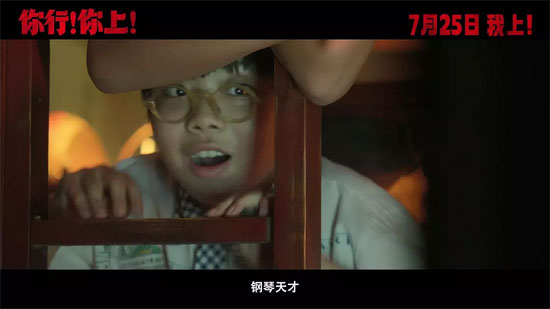
Lang Guoren is a bit more complicated. In a narrow sense, he can be understood as our party, but in a broader sense, I am more inclined to think of him as the spirit of independence and self-reliance, of constantly striving for progress. We can’t do without him, but we can’t rely solely on him either. Using the metaphor of a “father” to personify him is really very Jiang Wen-esque.
Our son is so talented; of course, he needs to study under a master to further his skills! Thus, Lang Guoren took Lang Lang on a long journey of learning (i.e., the path of industrialization and modernization toward prosperity for the new China).
The first teacher, Yang, was clearly the early Soviet Union. She saw Lang Lang’s extraordinary talent and taught him everything she knew. The student overcame difficulties, studied diligently, and made rapid progress through the changing seasons… Unfortunately, their “honeymoon period” was short-lived. Before Lang Lang had had enough time to learn, Ms. Yang suddenly had to care for her own child and stopped teaching (the aid was withdrawn).
The next teacher, Ms. Ouya, was much more complicated. She appeared mentally fragile and easily startled, and she always felt that the students she had taught had caused her harm.
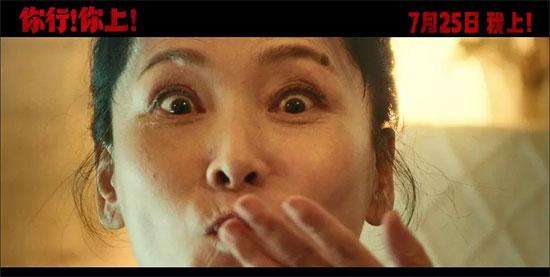
The primary prototype for the Eurasian teacher, of course, was also the “big brother” of the Soviet revisionist era. One moment she would raise the seat cushion, the next she would remove it. Especially after discovering that Lang Guoren was difficult to handle, and Lang Lang began to disobey as well, she bluntly stated that the child was unsuitable for playing the piano, preferring to destroy him rather than teach him.
However, I feel that Ouya is more of a composite of the Soviet revisionist era and our internal turmoil period, interspersed with some confusion and small progress from the post-correction era.
There’s a funny detail: after learning about the Lang family’s situation, the Fengtai Public Security Bureau officials obtained a bunch of soundproofing panels from the illegal structures of the group singing “All Is Lost” for “our son.” Such behavior was only possible during that specific period (Cui Jian also went to the preview screening yesterday; I imagine he found it amusing).
In fact, the only time Lang Lang ever considered giving up piano in the entire film was during the conflict between father and son after Eurasia kicked him out. The film even lingered on a long freeze-frame of Lang Guoren’s sliding tackle at the beginning.

That was the most dangerous moment in Lang Lang’s academic journey. Not only did he impulsively declare he wouldn’t study piano anymore, but he was also provoked by his father to the point of nearly losing his life.
Lang Guoren, of course, wouldn’t let his son actually go and die, but Lang Lang felt that his father wanted to replace him… It can only be said that the turmoil caused by the change in direction was terrifying, and the slightest misstep could lead to irreparable consequences. Even if his uncle downstairs was there to catch him, he probably couldn’t save him.
Once he got past this hurdle, Lang Lang’s path became much smoother. The two new teachers he had attached himself to seemed to have more connections and resources: one was Wang Zi (played by Ge You), who was eccentric but could achieve results through his methods, and the other was Zhuge Bole, who had direct connections with the foreign piano master circle.
The reform and opening-up era arrived, and the new winds of capitalism brought Lang Lang new goals… Oh, and after witnessing Lang Lang’s unconventional approach to getting into music school, the Eurasian teacher was carried away shortly afterward.
However, just because you imitate others doesn’t mean they’ll treat you fairly. Mr. Hu, who took Lang Lang and the others to competitions in Germany, said that no matter how well you play, you can only win the silver medal; they’d rather leave the gold medal vacant.
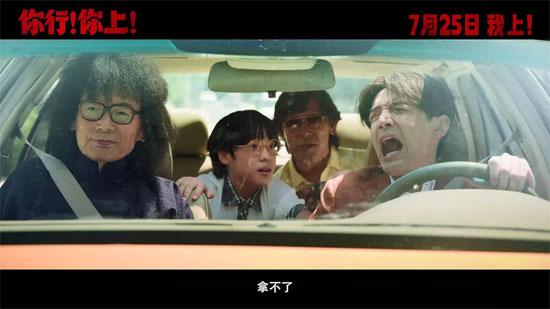
Then came the test: Lang Lang actually won an award—not just one, but several. Zhuge Bole took the opportunity to propose to Lang Guoren that he take Lang Lang away, saying, “Following your father will only make you like your father; following a master will make you a master.” Bole, of course, was a capitalist (or perhaps even the embodiment of capitalism). This teacher not only taught skills but also wanted you to change your ways and abandon your roots.
It was during this segment that Lang Guoren uttered the most representative statement of his ideological stance in the entire film: “I am the mastermind; you (teachers) are all temporary workers!”
Learning from a master is acceptable, but changing one’s father is not.
As for Wang Zi, he is more like those intellectuals, scientists, and rightists in China who did indeed offer advice and make contributions to Lang Lang’s growth, but when it came to actually taking on the role of father, they fell short. Lang Guoren once considered letting go, but Lang Lang ultimately chose his biological father to guide him.
There was no choice; the foreign connection couldn’t be severed. Lang Guoren could only continue to flirt with his mentor while also reaching out to the Cruz Music Academy… Before Lang Lang left the country, there was a performance that seemed rather out of place.
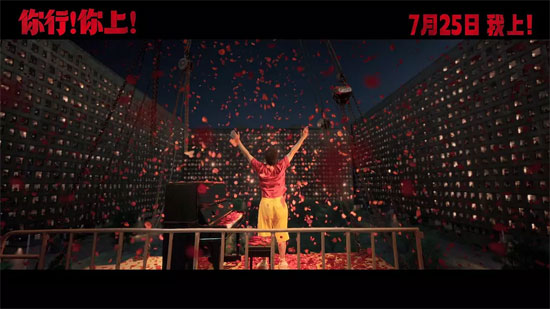
Under the watchful eyes and cheers of the neighborhood elders and residents, accompanied by spotlights, cranes, and flowers, Lang Lang performed several classic pieces, including “Xiao Fang,” “Liu Yang He,” and “Defend the Yellow River.”
This was a clear statement: the child was about to venture out into the world, and this was a way of showing that he had not forgotten his roots. Using music to express his resolve was precisely the point.
The latter half of “You Are the Best” was filmed in a more scattered manner and was indeed not as clear as the first half. I’ll just chat about some details.
Lang Lang has always been relentless in his pursuit of excellence, which is understandable given the Chinese image of hard work and diligence. However, this also made him highly unadaptable before and after going abroad—the father and son were fixated on competitions and only recognized first place, completely unaware of the concepts of flexibility and relaxation.
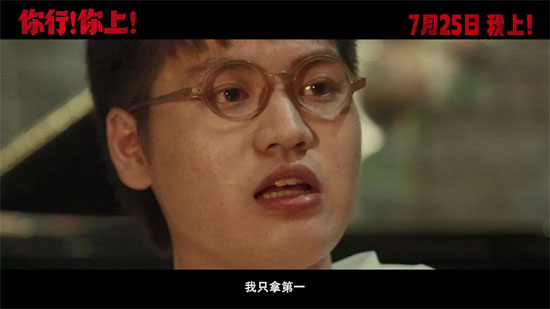
This also reflects our almost obsessive pursuit of dignity, honor, and self-validation during the years when we were working hard to catch up.
From the perspective of progress, this determination to strive is indeed meaningful, but today, this persistent obsession with excellence is increasingly being criticized, because life is simply too exhausting… This is a double-edged sword.
For example, when Lang Lang first entered the Cruz Music Academy to perform a concerto, he was thrown into the water by his second teacher, Zhen Zidan. He believed he hadn’t made any mistakes, but Agatha, the elderly aunt, told him, “You won first place in Sendai because you played better than the second-place performer, not because you didn’t make any mistakes throughout the performance.”
For a long time afterward, Lang Lang’s learning journey symbolized how, once we step onto a bigger stage, we are forced to undergo higher “standardized” scrutiny.
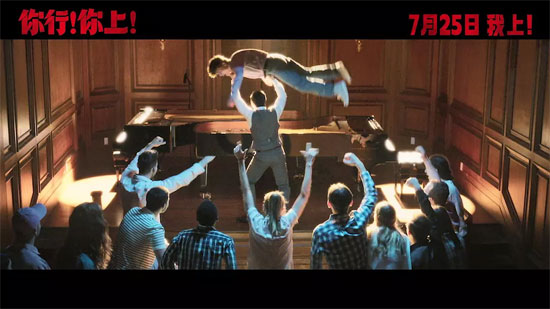
As for the scenario where the latercomer surpasses the master, we have seen this play out too many times in various industries over the years.
There was also the time when Lang Lang received a call and thought he was going to perform at the White House, only to find out it was a prank by Cao Cao, who was playing Sherlock Holmes, and his classmates on April Fool’s Day. The father and son clearly couldn’t take the joke, but they didn’t miss the opportunity to sign the contract.
But once the contract was signed, they were left speechless, as the timing of performances was entirely up to others. As a young, inexperienced outsider, no matter how talented you are, you can only serve as a backup. Whether you have to wait five, ten, or fifty years depends entirely on others’ discretion—after all, the rules of this circle are set by others.
In summary, while Lang Lang plays the piano in “You Are the Best,” it is Lang Guoren who truly takes center stage. He withstood attacks from both within and without, endured the pressure from teachers and the environment, and blazed a trail through unimaginable hardships.

When Lang Lang reaches the pinnacle of his career, let us not forget that it was Lang Guoren who first wondered, “What lies beyond the ceiling?” One must dare to imagine before daring to act, and he truly deserves the title of chief designer.
Having tasted the vinegar, I must now temper my taste. Let us briefly discuss dumplings.
Jiang Wen’s self-expression has always been far stronger than his commercial appeal (“Let The Bullets Fly” was more of an accident), and “You Are the Best” clearly plays to his strengths, striving to highlight his rogue-like, humorous side—unfortunately, the film’s fast-paced editing and lengthy Northeast dialect dialogue only serve a superficial purpose, and in some ways, this exposes the shallowness in the plot and joke writing.
I must admit that if it weren’t for the joy of interpreting metaphors while watching the film, relying solely on plot, audiovisual elements, and characters, this film wouldn’t be very entertaining.
Watching a movie isn’t about solving puzzles (though some people enjoy that), and since Jiang Wen clearly wants “You Are the Best” to make money at the box office, it’s no surprise that audiences are disappointed. He deserves the criticism.

Finally, I’d like to express my admiration for Jiang Wen. In today’s creative climate, where creators are trying to avoid paternalistic narratives and “toxic masculinity,” Jiang Wen goes against the grain and doesn’t even bother to pretend.
Lang Guoren is a typical traditional Chinese father—decision-making, action-oriented, sometimes even domineering and unreasonable. He certainly has his flaws, but whatever he does is for the sake of his children… Whether his actions are justified or not is open to interpretation.
Actually, as I watched “You Are the Best” toward the end, I kept thinking of the line from “Hidden Man” where Lan Qingfeng tells Li Tienyan, “You should find yourself a son…” At the film’s conclusion, Lang Guoren is also carried away, and from above, he watches his vibrant son with a sense of satisfaction.
There are no teachers left to guide him (even the US is on the brink of collapse), and the path ahead is an even more challenging unknown territory.
Please specify:Anime Phone Cases » You are the Best 你行!你上!2025 Film Review: Rehabilitating the term “daddy’s boy”